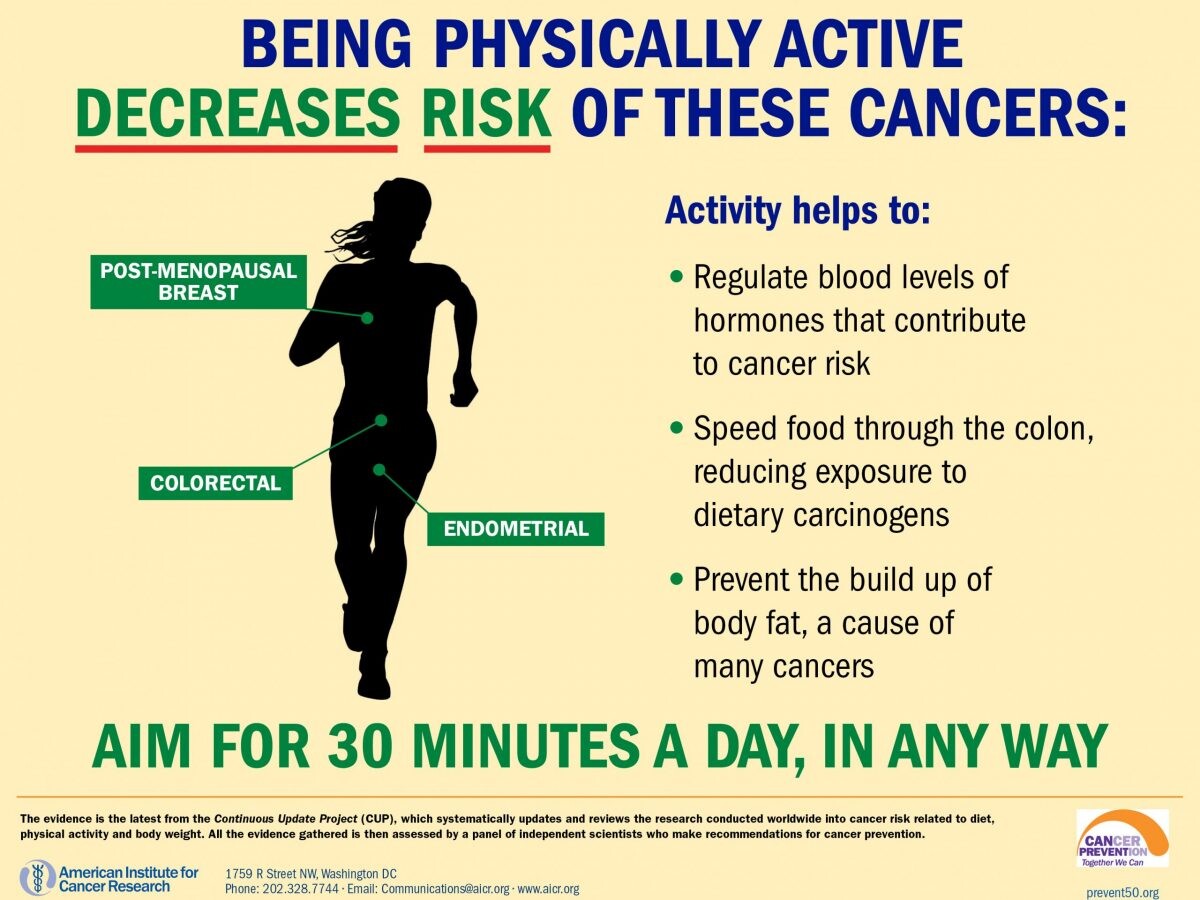Running News Daily
Running News Daily is edited by Bob Anderson. Send your news items to bob@mybestruns.com Advertising opportunities available. Train the Kenyan Way at KATA Kenya and Portugal owned and operated by Bob Anderson. Be sure to catch our movie A Long Run the movie KATA Running Camps and KATA Potato Farms - 31 now open in Kenya! https://kata.ke/
Index to Daily Posts · Sign Up For Updates · Run The World Feed
When It Comes to Cancer Prevention, Here’s How Much Exercise You May Need Each Week
Any amount of movement is beneficial, but research indicates there may be a sweet spot.
At least five hours of moderate-intensity activity per week may prevent certain types of cancers related to the breast, colon, stomach, kidney, bladder, and esophagus, new research suggests.

Exercise has been shown to address some causes of cancer, such as obesity and inflammation.
Of course, exercise alone won’t eliminate your risk since there are many factors that go into that equation, including genetics, environmental exposure, smoking and alcohol use, age, diet, and hormones.
When it comes to cancer prevention, lifestyle habits make an enormous difference, and exercise is a major part of that, according to a new study in the journal Medicine & Science in Sports & Exercise.
Researchers looked at state-level data on cancer incidence as well as physical activity by state (in people age 30 or older) and found a strong connection between reduced cancer prevalence and more exercise. That was particularly true for cancers related to the breast, colon, stomach, kidney, bladder, and esophagus.
They noted that more than 46,000 cancer cases in the U.S. annually could be prevented if people followed the guideline of getting at least five hours of moderate-intensity activity per week. For all cancer cases in adults between 2013 and 2016, about 3 percent were attributable to physical inactivity, they suggested. That incidence was higher in women than in men, researchers added.
States with the highest proportion of cancers attributed to sedentary behavior were in the South, such as Kentucky, West Virginia, Tennessee, Louisiana, and Mississippi. Those with the lowest proportion were in Western states like Montana, Utah, and Wyoming.
Of course, exercise alone won’t eliminate your cancer risk since there are many factors that go into that equation, including genetics, environmental exposure, obesity, chronic inflammation, smoking and alcohol use, age, diet, and hormones.
However, exercise has been shown in the past to address some of those factors, such as obesity and inflammation. With the latter, more intense physical activity can actually increase inflammation in the short term, but research indicates it brings the level down overall, and one study noted that as little as 20 minutes of exercise could kick off this effect.
“Continuous inflammation stresses your entire body, including lowering your immune system response, damaging your DNA, and affecting your gut health,” William Li, M.D., author of Eat to Beat Disease: The New Science of How Your Body Can Heal Itself, told Runner’s World. “All of those can contribute toward cancer development, as well as raise your risk of type 2 diabetes and other chronic conditions, especially if it comes with weight gain.”
Building muscle through strength training or endurance exercise—like running—can be helpful for reducing inflammation, Li said, particularly if you adopt a diet rich in anti-inflammatory foods, like fruits and vegetables.
by Runner’s World
Login to leave a comment




